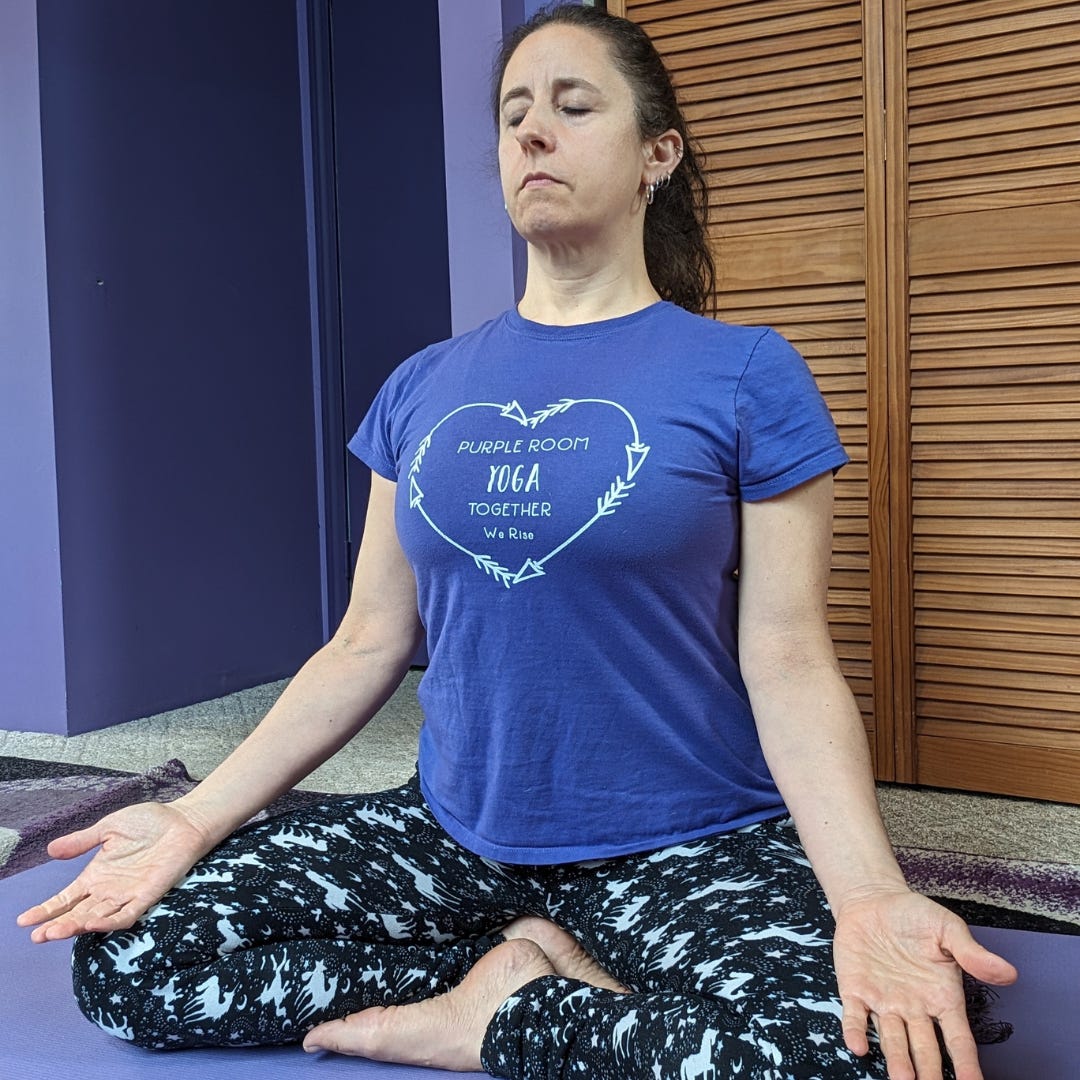Over the past 8 months I have been teaching a yoga course called Diving Deeper into Your Yoga Practice. Yoga is much more than just poses on the mat, although many of us start off with that. I know I did. Yoga is actually a multifaceted practice that involves the mind, body, and spirit, and can be practiced both on and off the mat.
Yoga is broken down into 8 Limbs: Yama (how we relate to others), Niyama (how we relate to ourselves), Asana (poses on the mat), Pranayama (breath control), Pratyahara (withdrawal of the senses), Dharana (Concentration), Dyhana (Meditative Flow), and Samadhi (Union with Universal Consciousness).
The first 2 limbs are what I like to call the “10 Commandments” of yoga. I say this jokingly because none are actual commands like “that shalt not….” These are guidelines to live a more peaceful, conscious life.
As part of the course that I mentioned above, we read the book “Being Human: The Yamas and Niyamas” by Sara Adams. She makes these normally cerebral, esoteric concepts understandable and relatable. I have learned and relearned these ideas numerous times over the almost 30 years that I’ve been practicing yoga. After reading this book, I find that I can integrate these concepts into my life in a more concrete way. (I highly recommend this book of you are interested—it’s a quick read).

Over the next 10 weeks, I would like to dive into the Yamas and Niyamas here on Substack and explore them one at a time. These concepts are simple, yet profound, and can have a big impact on how you feel, how you relate to yourself and others, and how you live your life. It has taken me decades to be able to absorb these concepts on a practical level; I would like to (hopefully) save you some time.
If you have studied these principles, I would love to hear how you apply the Yamas and Niyamas into your daily living. What do you struggle with? What comes easily and naturally?
The Basics
The Yamas and Niyamas are broken down into 5 principles each.
The Yamas:
Ahimsa (non-harming)
Satya (truth)
Asteya (non-stealing)
Brahmacharya (non-excess)
Aparigraha (non-attachment)
The Niyamas:
Saucha (purity)
Santosha (contentment)
Tapas (discipline)
Svadhyaya (self-study)
Isvara Pranidhana (Surrender)
I plan to go through each principle, one at a time, exploring how these millenia-old ideas still apply today, and how we need them more than ever. This will be more than a cursory once over, I want to make these ideas tangible, relatable, and applicable to your life. Take what you like, and let go of the rest.
As I age (I’m currently 52), I am more interested in letting go of beliefs that no longer serve me. I want to focus on what is actually true, rather than what I believe to be true; I find yoga to be incredibly helpful toward that end.
Feelings of being not enough, perfectionism, overworking, under-resting, eating poorly, not caring for yourself in the way that you deserve, and more can be shifted by studying and applying the Yamas and Niyamas. That’s why they exist. It takes time, and won’t happen all at once, but it’s work worth doing. It has been for me.

In going through these principles with my students, we came to realize that all humans have had similar experiences throughout history. Despite different external factors, we all have the same internal struggles, the same feelings, and the same emotions as people have since forever. These 10 principles were created back in the time of the Buddha and earlier and are still relevant today. In our modern era, when we are so divorced from our bodies and their needs, as well as from each other, we need this work more than ever.
I invite you to join me on this journey of exploration. Don’t worry, you don’t need sign up for anything, simply read along. If you’re a subscriber, free or paid, you’re all set! If not, click below and subscribe, however you like, so that you don’t miss a post! I promise it will be worth your while if you seek more ease and gentleness in your life. If you have any questions ahead of time or as we go, please message me, join me in the comments, or reach out by email at any time.
This series will go out every Tuesday, starting May 7. Thanks for coming along for the ride! All are welcome, whether you currently practice yoga or not.
You can also join along in the discussion in my private Facebook group, Yoga Living 50 and Beyond.






Great, I love it.
Understanding the limbs by breaking them down and relating them to everyday actions has helped me to better understand them but also helped me to apply them in my day to day life.